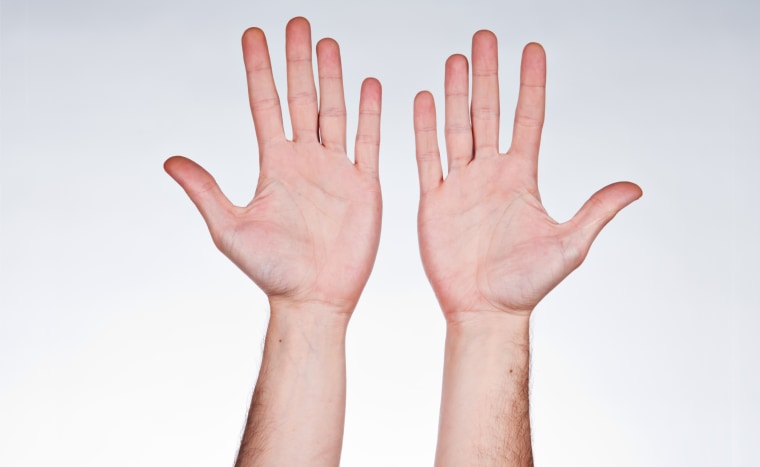With Left-Handers Day coming up on August 13, you might be hearing about all those famous lefties throughout history, from Aristotle to Napoleon, Queen Victoria to Helen Keller. But if you're tempted to bust out that bit of trivia about left-handed presidents (six of the last 12!) to the next lefty you encounter, just don't, cautions David Wolman, author of A Left Hand Turn Around the World: Chasing the Mystery and Meaning of All Things Southpaw. “We've all heard it.”
And while the day to day lives of left- and right-handers may indeed be a little different — starting with the coffee carafe having numbers on the wrong side if you're left handed — in general, lefties are “probably more like right-handers than they know,” Wolman says.
Does that mean we shouldn't be envious of those inherent gifts that come along with left-handedness? I've long harbored a bit of a wish to be a lefty myself based on what may be the most persistent idea about southpaws — their creativity superpowers. It seems I shouldn't waste my energy.
There is a long daisy chain of linguistic history for left-handedness to the word sinister.
“There's so much garbage out there and urban legend about lefties being more creative,” Wolman says. “That righties are destined to be accountants or lawyers who think with the left side of their brain.” In his research trawling the globe — and his own experience — “that stuff is rubbish. It's just that lefties like to talk about being creative — and so do their parents.”
Fair point. But still, there are an awful lot of famously creative lefties, from Leonardo da Vinci to Oprah. But maybe they're forced to be creative. Righties of the world, have you ever stopped to think about what it's like for lefties in a world that, let's face it, was designed for us?
What's It Like to Be a Lefty?
Lefties were eager to share their trials and tribulations when I posed the question to friends: What's it like growing up left-handed? The struggle is real; there are pens that smudge, notebooks that don't lay right, wrong-handed oven mitts, and that dreaded coffee carafe with numbers on only one side — the wrong one, if you're lefthanded.
And then there are dinner parties. “There is a very fast mental calculus when sitting down at a restaurant,” Wolman says. “I don't know that woman that well, I don't want to bump her elbow.”
It starts early, the difficulties of left-handed life, lefty Christine Vaughan of Louisville, Kentucky, says. “In gym class they only had stuff for right-handed people most of the time,” she says. And if there was stuff for lefties, it is like one and you had to share with all the other lefties.” To add insult to injury, she says, sports equipment like golf clubs often costs more for a left-handed version. (Think about it; most manufacturing would be set up to put out mass quantities of objects for the majority — righties.)
Superstition Around Southpaws Still Persists
For many I heard from, they were encouraged — if not downright required — to learn to use their right hand growing up. And that's nothing new.
“Throughout the world in countless cultures, because being left-handed was a little different it was viewed as negative and other,” in line with, say leprosy, Wolman explains. This was especially so, he added, in more superstitious or religious communities. In fact, “there is a long daisy chain of linguistic history for left-handedness to the word sinister.”
Some of the superstitions surrounding southpaws persist; a news story out of Oklahoma reported that a four-year old was sent home from preschool with a letter that said left-handedness was associated with evil.
“But lefties are just yet another group of people that are a little different,” Wolman says. The interesting question, he added, is “why weren't we bred out? There's been this steady thing of about ten percent of the population [being left-handed]”
“The best guess I have,” he reasons, “is that there must be some benefit to humanity to having this extra twist of diversity.”
And a milder amount of diversity like this in brain organization is great, he said “because we get artists and musicians … That's what makes us us.”
Left-handedness really should be celebrated after all. “There's something beautiful about the fact that something this straightforward can't be easily explained,” Wolman says. “And it leads to to celebrating the differences among people.”
